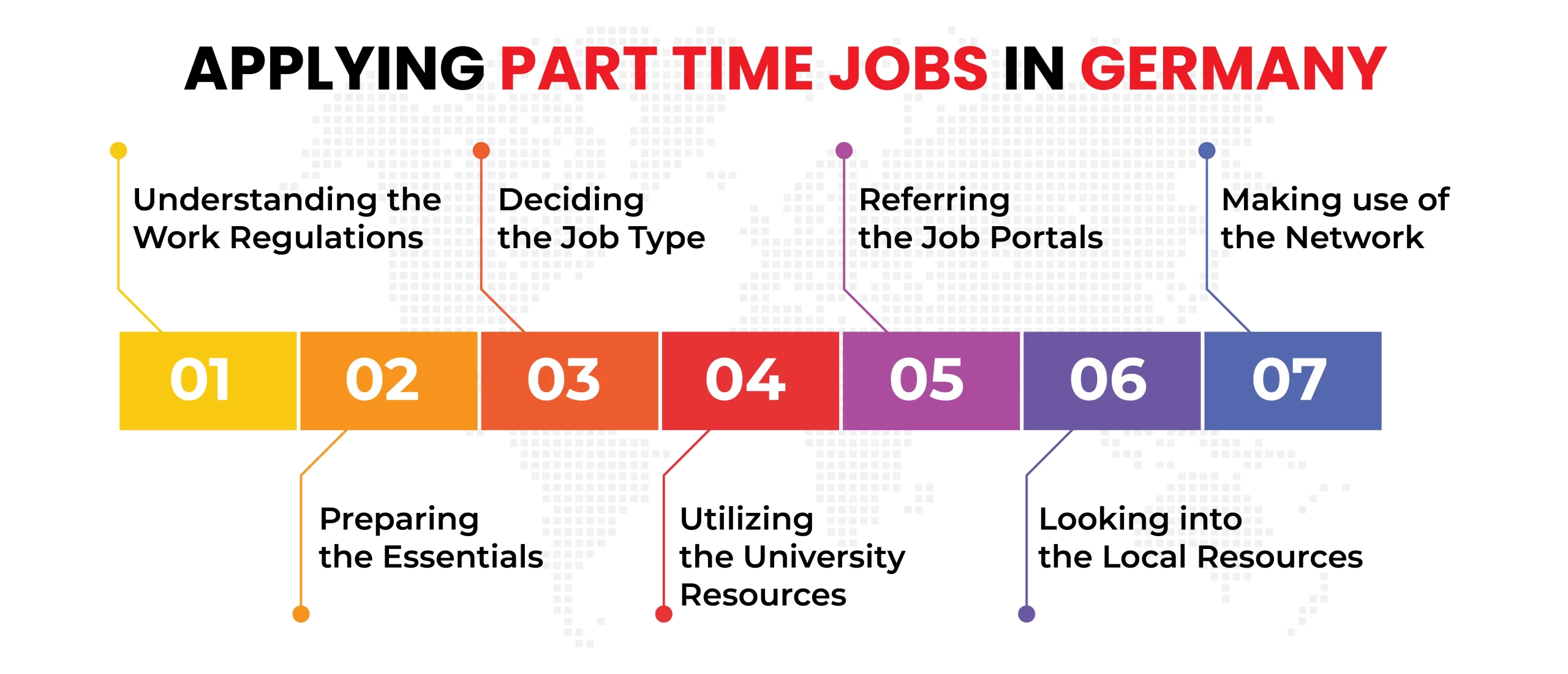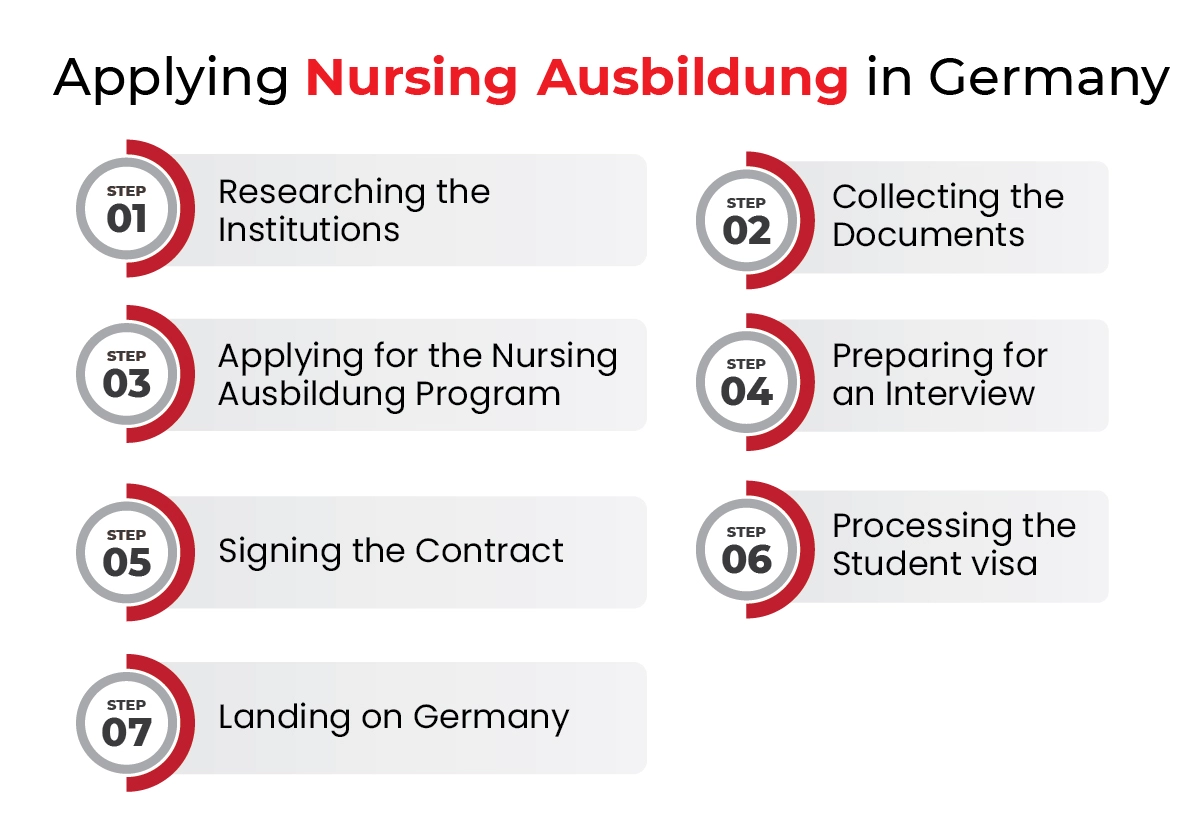Nursing is a profession where one can reap two benefits: nurturing the humane and earning the money. The recent impact of the pandemic paves the way for the need for more healthcare professionals, like doctors, surgeons, pharmacists, physicians, and so on. For all these healthcare professionals, there will be a need for more nursing practitioners to aid them. Moreover, people see the nurses with the utmost respect, yet nursing courses are among the underrated courses in higher education. International students who want to study abroad land in the United Kingdom since it is among the top countries for nursing. Students who want to study nursing in UK may be unaware of the full set of facts. Therefore, this blog will come in handy.
This blog covers the nursing study in the UK in a detailed way, from top universities to its requirements and job opportunities, and concludes with some frequently asked questions.
Table of Content
1Why Study Nursing in UK2Types of Nursing Courses3Top Universities for Nursing in UK4Nursing in UK Requirements5Nursing in UK Fees6How to Apply for Nursing in UK7Nursing Job Opportunities in UK8Nursing in UK Salary9Concluding Remarks10Frequently Asked Questions
Why Study Nursing in UK
Ever-upgrading Education: The UK education system has designed nursing courses to be comprehensive, covering everything from the fundamentals to advanced knowledge while integrating the latest research practices in the field. Moreover, the UK courses adhere to the standards of the Nursing and Midwifery Council (NMC) that align healthcare needs both nationally and internationally.
Global Recognition: The UK universities award globally recognized degrees. Also, students in the UK who pursued nursing open up a plethora of career opportunities because of the UK education from the esteemed universities.
Clinical Exposure & Experience: The nursing course provides students with practical exposure in clinical areas via diverse placements in their curriculum. With these placements, students not only learn the technical nursing methods but also some soft skills like critical thinking, problem solving, and communication skills.
Career Opportunities: Like many other countries, the UK is experiencing a growing demand for nurses due to the rise of unpredictable diseases and their evolving variants. Graduates with the right qualifications can find a wealth of job opportunities both within the UK and in surrounding regions.
Diverse & Multicultural Environment: The UK welcomes international students from all over the world with its UK study visa This diverse environment fosters cultural competence, a vital skill in today’s globalized healthcare system.
Types of Nursing Courses
Students pursuing nursing in UK must be aware of the required credentials. Hence, the following lists the types of courses of nursing in UK for international students:
Bachelors: These courses serve as basic knowledge for students who want to become nurses. The duration of the course varies between three and four years. This course covers both theoretical and practical aspects of nursing. The popular course is Sc in Nursing (BScN).
Masters: After completing their bachelor’s degree and registering as nurses, students can pursue a master’s to advance their nursing careers. In contrast to a bachelor’s degree, a master’s degree typically lasts one or two years. The popular course is the Sc Nursing in UK (MScN).
Postgraduate Diploma: Nurses who wish to specialize in a specific area, such as mental health care, neonatal care, or other related fields, can pursue this diploma course for their advancement.
Nurse Associate Apprenticeship: This new nursing course balances academic learning with practical, on-the-job training. Although it resembles an Ausbildung program in Germany, it focuses specifically on nursing. This apprenticeship targets healthcare support workers who aspire to become registered nurses.
Doctorate: This level of education prepares nurses to excel in academics or research-related fields.
In addition to the standard qualifications, there are various certifications available, such as foundation courses, graduate certificates, and advanced diplomas in nursing. These credentials help enhance the educational experience for international students and elevate their professional development.
Top Universities for Nursing in UK

After obtaining a study visa for UK, international students often aim to enroll in top universities to pursue nursing courses. Public universities in the UK generally offer lower tuition fees compared to private institutions. Hence, below are some of the top universities in the UK for nursing:
- University of Edinburgh
- University of Glasgow
- Kingston University
- University of Sheffield
- University of Liverpool
Let’s explore this in more detail:
1. University of Edinburgh
The University of Edinburgh is a prestigious public research university located in Edinburgh, founded in 1582. International students pursuing nursing in UK highly favor the University of Edinburgh because of its strong reputation, excellent faculty, and clinical opportunities. Nursing studies at the University of Edinburgh have played a prominent role in shaping nursing education and research across Europe.
| Location |
|
| Popular Courses |
|
| Average Tuition Fees (£/year) |
|
2. University of Glasgow
The University of Glasgow, founded in 1451, is also a public university and predates the University of Glasgow. Students with the valid UK student visa often enroll here because of its ancient touch with modern technology. The nursing courses offered at the University of Glasgow craft a curriculum with a clean division between the university and the practicing environment for better understanding among students.
| Location |
|
| Popular Courses |
|
| Average Tuition Fees (£/year) |
|
3. Kingston University
The Kingston University, founded in 1889, is also a public research university. The University offers a wide range of nursing courses across various levels of qualification. Also, the Kingston university designs these courses to be highly practical, offering students hands-on experience. The university is committed to maintaining high standards of teaching and technology. As a result, it attracts every international student with a valid United Kingdom student visa.
| Location |
|
| Popular Courses |
|
| Average Tuition Fees (£/year) |
|
4. University of Sheffield
The University of Sheffield, a prestigious public research university with a global reputation for excellence, offers nursing courses tailored for international students. These programs combine academic rigor with hands-on clinical experience, preparing students for successful careers in healthcare. With a focus on global health, state-of-the-art facilities, and strong industry links, the university equips graduates with the skills to thrive in diverse healthcare settings worldwide.
| Location |
|
| Popular Courses |
|
| Average Tuition Fees (£/year) |
|
5. University of Liverpool
The University of Liverpool, founded in 1881, is a public research university that welcomes international students pursuing nursing in UK. Its structured curriculum, practical experience, and solid theoretical foundation provide a well-rounded nursing education. With excellent facilities, expert faculty, and strong clinical placements, students are well-prepared and get an application for nursing courses and embark on successful healthcare careers.
| Location |
|
| Popular Courses |
|
| Average Tuition Fees (£/year) |
|
Nursing in UK Requirements
Eligibility Criteria:
An international student with a valid UK study visa can pursue a B.Sc Nursing in UK, a Master’s, or a Ph.D. in the United Kingdom, provided they meet the following eligibility requirements:
Language Requirements: An IELTS score of 7.0 or higher, or an equivalent language proficiency exam, as specified in the course requirements.
Academic Requirements: Completion of High School Education with satisfactory grades in subjects like Biology, Chemistry and Mathematics.
Visa: A valid United Kingdom study visa.
Documents Required:
After meeting the eligibility criteria, international students should gather the necessary documents to apply for nursing in UK. The following are the required documents:
- Marksheets of Secondary Education (or) Bachelors (or) Equivalent
- English Language Proficiency Test Scores
- Statement of Purpose
- Resume (or) CV
- Proof of Finance
- Application Form & the application fee receipt
- Letter of Recommendation (if required)
- UK student visa.
It is advisable for students to review the course description for the required documents before enrolling.
Nursing in UK Fees
Generally, the UK study cost for nursing varies according to the location and type of university the student pursues. To provide a broader perspective, the following table presents an approximate overview of the costs associated with both education and living in the UK:
| Academics (GBP/year) | Living & Accommodation (GBP/year) |
|
|
How to Apply for Nursing in UK
To secure admission at UK universities, applicants must follow a series of steps in a sequential manner. The following are the steps for applying to the nursing course:
1. Before applying, decide the discipline and the university for the nursing course in the UK.
2. Then visit the official website of the concerned college and start applying for the course.
3. Submit the application along with all required documents, as outlined in the application portal, and log out after completing the payment of the application fee.
4. If an application is selected, they will call for an interview process.
5. In case the students feel that the tuition fees seem like a burden, they can apply for a UK scholarship to fund their education and reduce their burden of finance.
6. After receiving the admission letter, begin the student visa process.
For students who want to seek guidance, consider CanApprove, one of the best UK education consultants, near you.
Nursing Job Opportunities in UK
After completing nursing in UK, graduates can enrol in healthcare clinics under various designations, depending on their specialization. Hence, the following list highlights the potential job opportunities for international students in the UK:
- Registered Nurse
- Children Nurse
- Nurse Educator
- Care giver
- Adult Nurse
- Learning Disability Nurse
- Trainee Nurse
- Health Visitor
- Mental Health Nurse
- Midwife
Nursing in UK Salary
After considering the potential job opportunities in nursing in UK, it is important for international students to be aware of the salary for the specific role. Hence, the following table depicts the salaries for the potential jobs in nursing:
| S.No | Potential jobs | Salary (GBP/year) |
| 1 | Registered Nurse | £ 25,619 |
| 2 | Children Nurse | £ 29,107 |
| 3 | Nurse Educator | £ 35,938 |
| 4 | Care giver | £ 24,434 |
| 5 | Adult Nurse | £ 29,969 |
| 6 | Learning Disability Nurse | £ 31,494 |
| 7 | Trainee Nurse | £ 23,000 |
| 8 | Health Visitor | £ 35,000 |
| 9 | Mental Health Nurse | £ 24,414 |
| 10 | Midwife | £ 28,407 |
Concluding Remarks
On the whole, pursuing nursing in UK provides international students with access to top-tier education, a rich cultural experience, and a wide range of career opportunities in the global healthcare system. With its internationally recognized qualifications, hands-on-training, and diverse work environments, nursing course offers a fulfilling and impactful career path. By carefully navigating the application process, students can embark on a rewarding journey in healthcare, making a real difference in patients’ lives worldwide.





